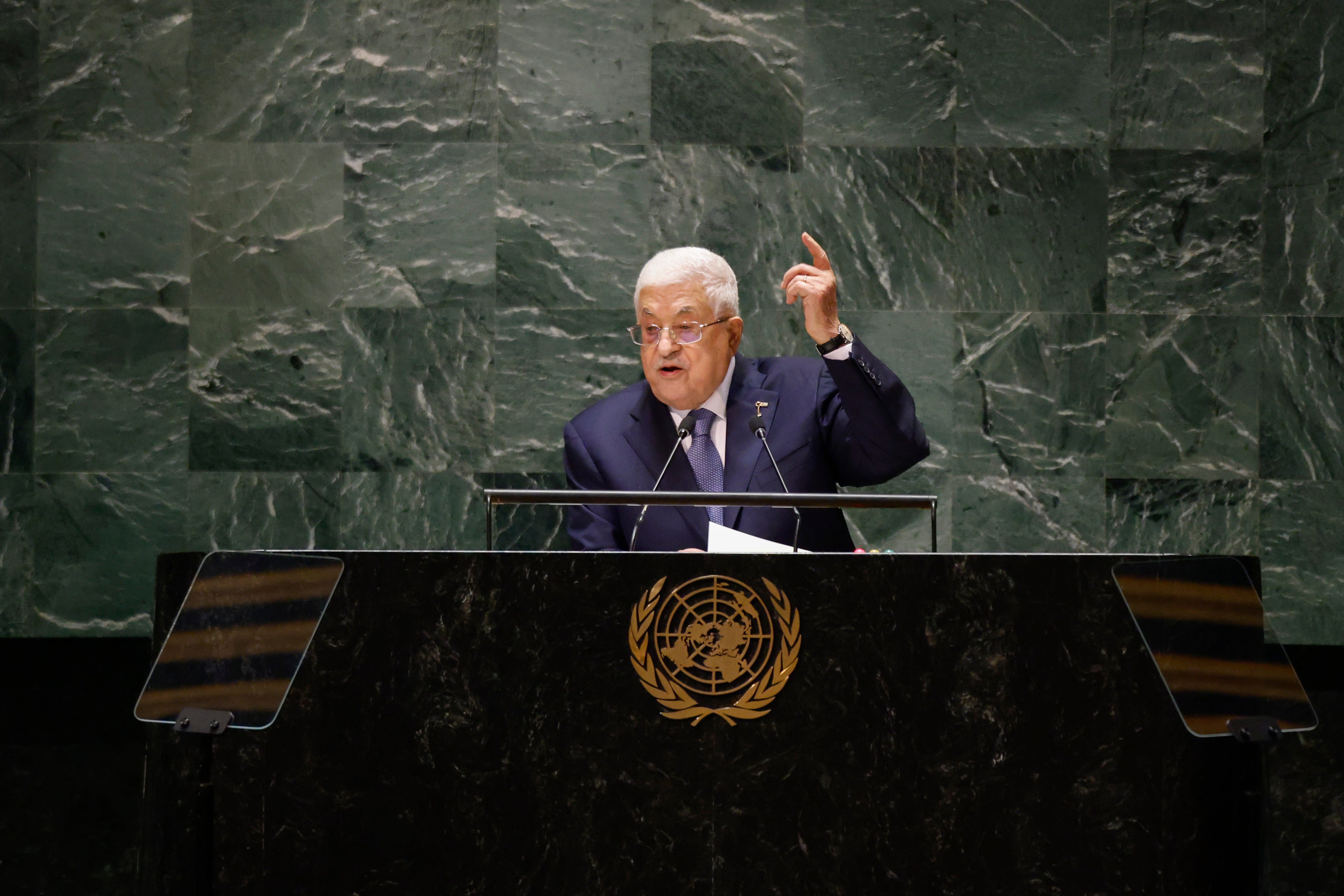Who should take control of Gaza after Israel is finished with Hamas?
US secretary of state Antony Blinken wants Mahmoud Abbas, the Palestinian Authority president, to play a central role in governing Gaza, writes Kim Sengupta. But imposing a new leader will be hugely problematic


There used to be a consensus among responsible politicians in this part of the world that “Mahmoud Abbas should not be sent to Gaza on the top of an Israeli tank’ to take power. The imposition of the flawed Palestinian Authority on the people there would, it was believed, be deeply resented by the population.
The imposition of the flawed Palestinian Authority on the people there would, it was believed, be deeply resented by the population.
But we are no longer living in normal times, and what happens to Gaza after Israel has carried out its threat to smite Hamas is an issue of deep concern to the international community.
The scenarios of what comes next are being played out among diplomats, as this – the bloodiest of Gaza wars – enters its fifth week. The government of Benjamin Netanyahu has repeatedly declared that it will play no part in the running of post-war Gaza, with talk of “walling off” the territory.
Antony Blinken, the US secretary of state, has reportedly impressed on Abbas [Abu Mazen] at a meeting that the Palestinian Authority should play a central role in the governance of Gaza when this conflict ends.
Such a succession, however, would be hugely problematic. When Abbas won the Palestinian Authority presidency in 2005, he was viewed by many as the reformer who would lift the movement out of its doldrums and address the rising complaints of its corruption and inefficiency.
Widely, and justifiably, regarded as a man of peace, Abbas denounced the violence of the second intifada and was one of the key figures in the Oslo peace process – which, at the time, brought with it flickering hopes of resolution.
The Americans and the Israelis saw him as someone they could do business with. The European states, which were vigorously backing Oslo, promoted Abbas as the statesman the Palestinians had lacked.
He was not, it was true, as charismatic as his predecessor, Yasser Arafat – but his pragmatism and common sense would, it was held, pave the way to a stable future.
But all that was a long time ago. The Oslo process withered, and the Palestinian Authority, which administers the West Bank, was soon again being accused of corruption and incompetence. Abbas, already 70 when he was elected, began to be viewed as too old, too out of touch.
Hamas won the Palestinian legislative elections in 2006 and nominated Ismail Haniyeh as prime minister. A national unity government was formed with Abbas’s Fatah, but it collapsed amid violent confrontation between the two groups. The Palestinian Authority, under Abbas, became limited to the West Bank.
Since then, with every conflict with Israel, Hamas’s stock has risen in the West Bank. In the recent funerals of those killed in clashes with Israeli forces or Jewish settlers, the green flag of Hamas has outnumbered the yellow flag of the Palestinian Authority.
Prominent Fatah families see the signs. Arab Barghouti, the 33-year-old son of the imprisoned Fatah leader Marwan Barghouti, regarded as the leader of the first and second intifadas and a Palestinian hero, told me while taking part in a protest march: “People have realised that the only way to respond to this cycle of Israeli oppression and violence is resistance and solidarity. They feel totally abandoned by the international community.
“There is no doubt that Hamas has gained popularity here. No one can condone some of the terrible things that were done during the Hamas attack. But people see Hamas as doing something, and they don’t see the Palestinian Authority standing up for the people.”
It may well be that, in the aftermath of the terrible devastation Gaza is suffering and will continue to suffer until the conflict ends, the Palestinian Authority, backed by huge international funding, can be a short-term fix. But it is unlikely to be the long-term answer to the territory’s problems of governance without undergoing major and meaningful reform.






Join our commenting forum
Join thought-provoking conversations, follow other Independent readers and see their replies
Comments